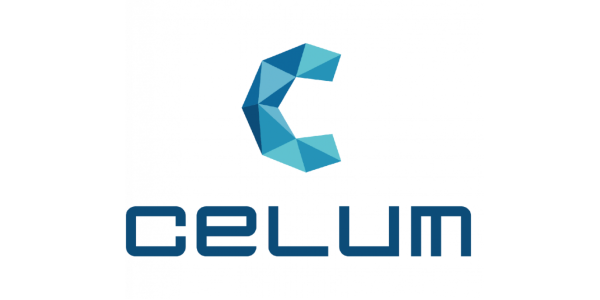Adapters
Adapters connect the Anura front-end components to an upstream source, usually a DAM. At least one is required.
anura-adapter
All adapters have to extend the anura-adapter in order to inherit some utility functions, namely:
- Translations
- translate(key, args) - labels translated into the current locale. Supports arbitrary arguments, e.g. the key
pageXis translated asPage {page}, expecting{page: 5}in the args. Sotranslate('pageX', {page: 5})results inPage 5 - setTranslation(multiMap) - overload the built-in translations, e.g.
setTranslation({en: {myKey: 'new value'}, de: {myKey: 'neuer Wert'}})
- translate(key, args) - labels translated into the current locale. Supports arbitrary arguments, e.g. the key
- States - stored in the URL as query parameters inside
window.location.hash(so you can copy-paste stateful links). Prefix is an arbitrary prefix to your key in order to support multiple instances of the same component on one page.- hasState(prefix, key) - test if a given key is present
- getState(prefix, key, fallback) - get the value of a given key, or your fallback value if not present
- getStates() - get all states
- setState(prefix, key, value) - set a value for a given key
- setStates(array) - set multiple states at once. Note that you must deal with prefix yourself.
- removeState(prefix, key) - removes the value for a given key (including the key itself)
- removeStates(prefix, fragment) - remove multiple values whose key starts with fragment
When implementing your own adapter, be sure to inform super() in attributeChangedCallback and connectedCallback.
Common Attributes
license
required: yes (except on localhost), default: -
The license (delivered by brix) enabling you to use the adapter (yeah... gotta eat..). This is based either on the hostname presenting the content, or the source thereof.
for ease of development,
localhostis enabled without a license.
<some-adapter license="askus"></some-adapter>
locale
required: no, default: the page's language (en if not declared)
ISO 639-1 code for the language you'd like to use. Defaults to <html lang=...> if present or en otherwise. Defaults to en when the requested string is not present in a given language. Note that translation files are loaded asynchronously and relative to the adapter's location.
Supported languages: bg, cz, de, en, es, fr, hu, it, nl, ro, sk, sl, pl and pt. Contributions are welcome :-)
<some-adapter locale="de"></some-adapter>
Setting an explicit locale disables the change detection of the <html lang=""> attribute.
facets
required: no, live: on-load, default: true
Set this to false to disable faceted search for all downstream components. Some adapters will do this automatically when that DAM doesn't support faceted search.
<some-adapter facets="false"></some-adapter>
state
required: no, live: no, default: true
Set this to false to disable states in all downstream components (state persists a component's state in the URL, e.g. for sharing deep-links).
order-key
required: no, live: on-load, default: -
Metadata key on which to forbid a direct download and force the user to use asset-order instead. Note that this is not particularly secure, as advanced users can simply fiddle with this - so if your backend supports such granular permissions, use those instead. Currently this is only implemented for Sharedien (and is not necessary for CELUM).
When used, you MUST set an order-value as well, which defines what value should be expected that forbids a download, i.e.
<some-adapter asset-order="https://asset.order/instance" order-key="copyrighted" order-value="true"></some-adapter>asset-order
required: only then using
order-key, live: on-load, default: -
Depending on your DAM, it may not feature an asset ordering process, so you need to define where an external (brix) asset order server lives.
<some-adapter asset-order="https://some.order.url"></some-adapter>
Events
load
A regular load-event, can be used to set translations, e.g.
<some-adapter locale="de" onload="this.setTranslation({en: {loadMore: 'gimme more'}})"></celum-adapter>adapter-reloading
{detail: {name: name, oldValue: oldValue, newValue: newValue}}
Fired when any attribute has been changed, indicating that components hooked up to this adapter may want to reload themselves, e.g. because the locale has changed (leading edge).
adapter-reloaded
{detail: {name: name, oldValue: oldValue, newValue: newValue}}
Fired after the adapter has reloaded itself, indicating that components hooked up to this adapter may want to reload themselves, e.g. because the locale has changed (trailing edge).
bynder-adapter
Connects to any Bynder server using their v4-API.
<bynder-adapter url="https://some-instance.bynder.com" token="xxx"></bynder-adapter>Built-in types
Bynder has a few built-in types that behave like a custom field, but are dictated by the system and can't be changed. To differentiate these from custom fields, you need to set the type="built-in" and source to one of:
- type
- orientation
Attributes
url
required: yes, default: -
The URL where the back-end endpoint is located, e.g. https://some-sandbox.bynder.com
token
required: yes, default: -
API-Token to use, see Advanced Settings > Portal Settings > Permanent Tokens. We'd recommend creating a separate user for it, as this will basically be public information for anyone looking at the source.
video-previews
required: no, default: -
Whether to display video previews instead of showing a large thumbnail.
Note that public video URLs are not available by default -> ask Bynder about "video CDN" first.
<bynder-adapter video-previews></bynder-adapter>
pdf-previews
required: no, default: -
Whether to display PDF previews instead of showing a large thumbnail.
This currently triggers an original file download, because Bynder doesn't deliver PDF preview links.
<bynder-adapter pdf-previews></bynder-adapter>
zip-service
required: no, default: zippy.brix.ch
Because Bynder's API provides no mechanism for downloading more than one file at once (as of 2023-04), an external service is used to assemble a ZIP file for basket downloads. By default our own zippy service is used - ask as about zippy if you want to host your own.
<bynder-adapter zip-service="https://some.zip.url"></bynder-adapter>
download-denylist
required: no, default:
mini,transformBaseUrl,webimage,thul
Download formats (aka renditions) you don't want to be listed in the download dialog. Relevant unless a donwload-allowlist is specified.
download-allowlist
required: no, default: all
Download formats (aka renditions) you want to be listed in the download dialog. This takes precedence over donwload-denylist.
celum-adapter
Connects Anura to a CELUM DAM, provided that the instance has the backend-plugin installed.
<celum-adapter url="https://my.celum.server/anura/example" locale="en"></celum-adapter>Attributes
url
required: yes, default: -
The URL where the back-end endpoint is located, e.g. https://my.celum.server/anura/example
token
required: maybe, default: -
- API-Token to use, only required when the back-end is protected by one.
- Alternatively, when CELUM Authentication should be triggered, set this to
loginto trigger a redirect (required backend >= 2.9.31)
document-previews
required: no, default: true
Whether to display PDF previews instead of showing a large thumbnail (depending on availability/file format).
<celum-adapter document-previews="false"></celum-adapter>
video-previews
required: no, default: true
Whether to display video previews instead of showing a large thumbnail.
<celum-adapter video-previews="false"></celum-adapter>
extended
required: no, default: false
Whether to fetch more asset attributes in list requests (such as file size, see API)
<celum-adapter extended="true"></celum-adapter>
infofields
required: no, default: -
A comma-separated list of information field IDs that should be loaded in every list requests (see API)
<celum-adapter infofields="123,456,789"></celum-adapter>
alt-name
required: no, default: -
An information field ID to use instead of the asset's name (because that can't be localized). The asset's name will be used as a fallback if the information field is empty.
<celum-adapter alt-name="123"></celum-adapter>
pixxio-adapter
Connects to any pixx.io instance using their API.
<pixxio-adapter url="https://some-instance.px.media" token="xxx"></pixxio-adapter>The ID of metadata fields is not visible in the UI, so the adapter will print a list of available metadata to the console on startup.
Note that the keywords field has a weird behavior where only a subset of all used keywords are returned (only those in Settings > Keyword Management), but assets may still have custom keywords which are not listed elsewhere, which may lead to an inconsistent navigation experience when using an <anura-select> (you can alternatively use anura-text for this reason).
Built-in types
pixx.io has a number of built-in search types that behave like a custom field, but are dictated by the system and can't be changed. To differentiate these from custom fields, you need to set the type="built-in" and source to one of:
- rating
- orientation
- colorspace
- fileType
- keywords
- createDate
- modifyDate
- uploadDate
- width
- height
e.g. <anura-number type="built-in" source="height"></anura-number>
Attributes
url
required: yes, default: -
The URL where the back-end endpoint is located, e.g. https://some-instance.px.media
token
required: yes, default: -
Go to "Settings > API > API-Key" and create one.
Only administrators can create API-keys, but you should never publicly use an admin-key (for obvious reasons). Workaround: Elevate your anura user to admin privileges, log in with that user, create an API-key, switch back to your account and remove his admin privileges again.
facets
Will automatically be set to false, because unfortunately they don't support faceted search at the moment.
thumb-width
type: pixel, required: no, live: on-load, default: 400
Width of the thumbnails, tweakable for very large layouts.
sharedien-adapter
Connects to any Sharedien server using their API (API-first 🥳)
<sharedien-adapter url="https://some-instance.sharedien.com" token="xxx"></sharedien-adapter>Sharedien does not support arbitrary pagination, you must operate the paginator in auto-mode
Attributes
url
required: yes, default: -
The URL where the back-end endpoint is located, e.g. https://some-instance.sharedien.com
token
required: yes, default: -
Go to "Admin > Security > Access Token" and create a token (that lasts long enough ^^)
browser
required: no, default: -
Set the browser identifier to use, which is basically an additional search filter defined in the backend of Sharedien (see Administration > Browsers).
<sharedien-adapter browser="some-browser"></sharedien-adapter>
load-properties
required: no, default: -
Which additional metadata properties should be loaded in every list request, useful for additional information or bullets.
<sharedien-adapter load-properties="some-prop,some-other-prop"></sharedien-adapter>
fallback-locale
required: no, default: -
Fallback locale to use for metadata fields that are empty in the requested locale.
<sharedien-adapter fallback-locale="de"></sharedien-adapter>
download-previews
required: no, default: -
Allow preview formats (e.g. Thumbnail or Screen) to be downloaded as well (comma-separated).
<sharedien-adapter download-previews="Screen"></sharedien-adapter>
© brix Solutions AG



